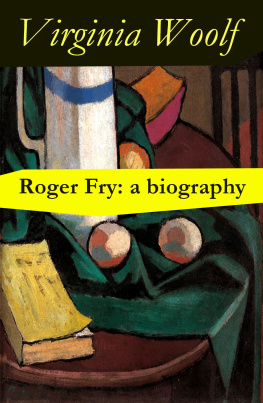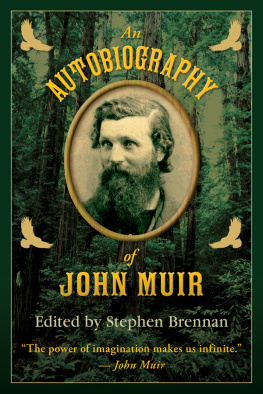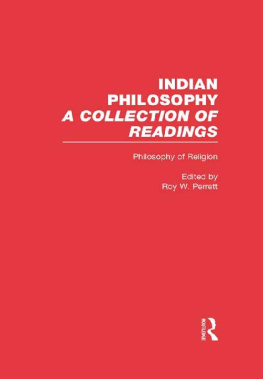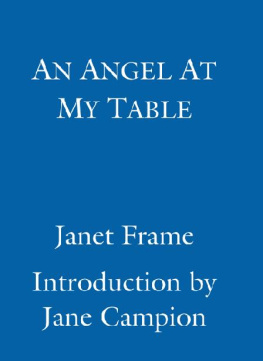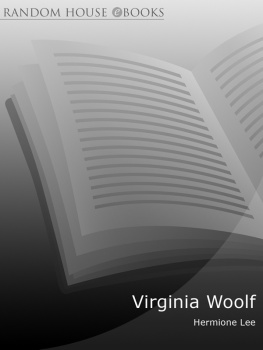Leslie Stephen - Studies Of A Biographer, Volume 1
Here you can read online Leslie Stephen - Studies Of A Biographer, Volume 1 full text of the book (entire story) in english for free. Download pdf and epub, get meaning, cover and reviews about this ebook. year: 2011, publisher: Barnes & Noble, genre: Detective and thriller. Description of the work, (preface) as well as reviews are available. Best literature library LitArk.com created for fans of good reading and offers a wide selection of genres:
Romance novel
Science fiction
Adventure
Detective
Science
History
Home and family
Prose
Art
Politics
Computer
Non-fiction
Religion
Business
Children
Humor
Choose a favorite category and find really read worthwhile books. Enjoy immersion in the world of imagination, feel the emotions of the characters or learn something new for yourself, make an fascinating discovery.
- Book:Studies Of A Biographer, Volume 1
- Author:
- Publisher:Barnes & Noble
- Genre:
- Year:2011
- Rating:4 / 5
- Favourites:Add to favourites
- Your mark:
- 80
- 1
- 2
- 3
- 4
- 5
Studies Of A Biographer, Volume 1: summary, description and annotation
We offer to read an annotation, description, summary or preface (depends on what the author of the book "Studies Of A Biographer, Volume 1" wrote himself). If you haven't found the necessary information about the book — write in the comments, we will try to find it.
Studies Of A Biographer, Volume 1 — read online for free the complete book (whole text) full work
Below is the text of the book, divided by pages. System saving the place of the last page read, allows you to conveniently read the book "Studies Of A Biographer, Volume 1" online for free, without having to search again every time where you left off. Put a bookmark, and you can go to the page where you finished reading at any time.
Font size:
Interval:
Bookmark:
This 2011 edition published by Barnes & Noble, Inc.
All rights reserved. No part of this publication may be reproduced, stored in a retrieval system, or transmitted, in any form or by any means, electronic, mechanical, photocopying, recording, or otherwise, without prior written permission from the publisher.
Barnes & Noble, Inc.
122 Fifth Avenue
New York, NY 10011
ISBN: 978-1-4114-5235-0
CONTENTS
MR. Sidney Lee has recently (February 1896) delivered at the Royal Institution a lecture upon National Biography. No one has a better right to speak upon the subject. He has been sole editor of the later volumes of the Dictionary of National Biography, and, as I can testify, had a very important share in preparing every previous volume. He spoke, therefore, from considerable experience, and if I were to deal with his subject from the same point of view, I should have little more to do than say "ditto" to most of his remarks. I would not contradict even his statistics, although, as a matter of fact, they differ to some extent from my own calculationsI put that down to the known perversity of arithmetic in general. But I also think that in dealing briefly with a large subject, he left untouched certain considerations which are a necessary complement to his argument. I shall venture from this point of view to say something of a matter in which I have some personal interest.
When the old Biographia Britannica was coming out, Cowper made the unpleasant remark that it was
A fond attempt to give a deathless lot
To names ignoble, born to be forgot.
If that was a fair judgment, what are we to say to the modern work, which includes thousands of names too obscure for mention in its predecessor? When Mr. Lee speaks of the "commemorative instinct" as justifying his undertaking, the enemy replies that a very small minority of the names deserve commemoration. To appeal to instinct is to repudiate reason and to justify monomania. Admitting, as we all admit, the importance of keeping alive the leading names in history, what is the use of this long procession of the hopelessly insignificant? Why repeat the familiar formula about the man who was born on such a day, was "educated at the grammar school of his native town," graduated in such a year, became fellow of his college, took a living, married, published a volume of sermons which nobody has read for a century or two, and has been during all that time in his churchyard? Can he not be left in peace, side by side with the "rude forefathers of the hamlet," who are content to lie beneath their quiet mounds of grass? Is it not almost a mockery to persist in keeping up some faint and flickering image of him above-ground? There is often some good reading to be found in country churchyards; but, on the whole, if one had to choose, one would perhaps rather have the good old timber cross-piece, with "afflictions sore long time he bore," than the ambitious monuments where History and its attendant cherubs are eternally poring over the list of the squire's virtues and honours. Why struggle against the inevitable? Better oblivion than a permanent admission that you were thoroughly and hopelessly commonplace. I confess that I sometimes thought as much when I was toiling on my old treadmill, now Mr. Lee's. Much of the work to be done was uninteresting, if not absolutely repulsive. I was often inclined to sympathise with the worthy Simon Browne, a Non-Conformist divine of the last century. Poor Browne had received a terrible shock. Some accounts say that he had lost his wife and only son; others that he had "accidentally strangled a highwayman,"not, one would think, so painful a catastrophe. Anyhow, his mind became affected; he fancied that his "spiritual substance" had been annihilated; he was a mere empty shell, a body without a soul; and, under these circumstances, as he tells us, he took to an employment which did not require a soulhe became a dictionary-maker. Still, we should, as he piously adds, "thank God for everything, and therefore for dictionary-makers." Though Browne's dictionary was not of the biographical kind, the remark seemed to be painfully applicable. Browne was only giving in other words the pith of Carlyle's constant lamentations when struggling amidst the vast dust-heaps accumulated by Dryasdust and his fellows. Could any good come of these painful toilings among the historical "kitchen middens"? If here and there you disinter some precious coin, does the rare success repay the endless sifting of the gigantic mounds of shot rubbish? And yet, by degrees, I came to think that there was really a justification for toils not of the most attractive kind. When our first volume appeared, one of our critics complained of me for not starting with a preface. A preface saves much trouble to a reviewersometimes the whole trouble of reading the book. I do not, however, much regret the omission, for the real utility of our undertaking, as it now presents itself to my mind, had not then become fully evident. I am not about to write a preface now, but I wish to give a hint or two of what I might or ought to have said in such a performance had I clearly perceived what has been gradually forced upon me by experience.
The "commemorative instinct" to which Mr. Lee refers has, undoubtedly, much to do with the undertaking; but, like other instincts, it requires to be regulated by more explicit reason. The thoroughbred Dryasdust is a very harmless, and sometimes a very amiable, creature. He may urge that his hobby is at least a very innocent one, and that we have no more call to condemn a man who has a passion for vast accumulations of dates, names, and facts than to condemn another for a love of art or natural history. The specialist who is typified in O. W. Holmes's Scarabee, the man who devotes a lifetime to acquiring abnormal familiarity with the minutest peculiarities of some obscure tribe of insects, does no direct harm to his fellows, and incidentally contributes something, however minute the contribution may be to scientific progress. We must respect the zeal which enables a man to expend the superabundant energy, which might have led to fame or fortune, upon achievements of which, perhaps, not half a dozen living men will appreciate either the general value or the cost to the worker. Dryasdust deserves the same sort of sympathy. He has, no doubt, his weaknesses. His passion becomes a monomania. He spends infinite toil upon work which has no obvious interest, and he often comes to attach an absurd importance to his results. Such studies as genealogy or bibliography have but a remote bearing upon any of the vital problems suggested by the real historian. We shudder when we read that the excellent Colonel Chester spent years upon investigating the genealogy of Washington, and accumulated, among many other labours, eighty-seven folio volumes, each of more than 400 pages of extracts from parish registers. He died, it is added, of "incessant work." The late Mr. Bradshaw, again, a man of most admirable character, and very fine intellectual qualities, acquired, by unremitting practice an astonishing power of identifying at a glance the time and place of printing of old books. He could interpret minute typographical indications as the Red Indian can read on a dead leaf or blade of grass the sign of the traveller who made it. Certainly one is tempted to regret at first sight that such abilities were not applied in more obviously useful fields. What do we care whether one or another obscure country squire in the sixteenth or seventeenth century had the merit of being progenitor of Washington? Can it really matter whether a particular volume was printed at Rotterdam or at Venicein the year 1600 or ten years sooner or later? I will not discuss the moral question. At any rate, one may perhaps urge, it is better than spending brain-power upon chess problems, which is yet an innocent form of amusement. Such a labourer may incidentally provide data of real importance to the political or literary historian: he reduces, once for all, one bit of chaos to order, and helps to raise the general standard of accurate research. He is pretty certain to confer a benefit, if not a very important benefit, upon mankind; whereas, if he fancied himself a philosopher, he might be wasting his labour as hopelessly as in squaring the circle. He is at least laying bricks, not blowing futile soap-bubbles.
Next pageFont size:
Interval:
Bookmark:
Similar books «Studies Of A Biographer, Volume 1»
Look at similar books to Studies Of A Biographer, Volume 1. We have selected literature similar in name and meaning in the hope of providing readers with more options to find new, interesting, not yet read works.
Discussion, reviews of the book Studies Of A Biographer, Volume 1 and just readers' own opinions. Leave your comments, write what you think about the work, its meaning or the main characters. Specify what exactly you liked and what you didn't like, and why you think so.



